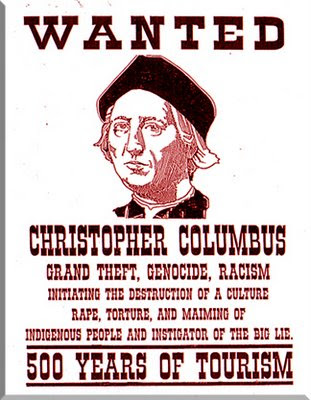Here is a historical and human truth:
Essentially every human being has aspects of their lives that are noble  (did you know that Hitler was an aspiring artist?) and aspects of their lives that were distressing (Did you know that George Washington was a slave owner?). This is according to the Christian understanding that though we are all created in the image of God, we all also have “sinned and fallen short of the glory of God.” (Romans 3:23). No person ever lived a life as a human without willful sin except Jesus Christ Himself.
(did you know that Hitler was an aspiring artist?) and aspects of their lives that were distressing (Did you know that George Washington was a slave owner?). This is according to the Christian understanding that though we are all created in the image of God, we all also have “sinned and fallen short of the glory of God.” (Romans 3:23). No person ever lived a life as a human without willful sin except Jesus Christ Himself.
About every significant historical person and event, there seems to be the deification movement and the demonization movement (we are a Borderline culture, after all – again, as I promised, more about that before we are done). I keep running into this every time I study an event or person.
The Alamo was a Thermopylae-like, multi-day defensive struggle by heroic and able men devoted to death in order to give the Texian army time to develop, or they were a band of misfits who surrendered at the first sign of their own blood, only to be summarily executed by Santa Anna.
I have read both versions presented as facts.
Christopher Columbus was a Godly man, given a vision, by his dying father, of an entire land of people without the hope of Jesus Christ…  and he then dedicated himself to finding a passage for King (whichever king would back him), Country (whichever country would back him) in search of wealth and mission, or he was a sexually counter-cultural creature of vile tastes who sought only to steal, kill and destroy in an utterly self-serving goal to use whoever it took to grasp for what he desired.
and he then dedicated himself to finding a passage for King (whichever king would back him), Country (whichever country would back him) in search of wealth and mission, or he was a sexually counter-cultural creature of vile tastes who sought only to steal, kill and destroy in an utterly self-serving goal to use whoever it took to grasp for what he desired.
Both of these have been specified within my hearing.
So, which Christian doctrines or scriptural ethics can help guide a believer when it comes to cultural shifts, especially sudden ones, like we have seen recently in the US regarding the removal of monuments and memorials that honor Confederate leaders from the American Civil War?
Christian Ethic #1 for this conversation:
First off, I have thought of a bunch of Christian ethics – meekness, mutual submission, following leaders, being peacemakers – and some of these are wrapped up in the ones I chose.
But, I intentionally chose the ones that I am using with my kids to talk about these issues.
I think one, which can be used to walk our children through these crises (in addition to the Romans 3:23 above) can be found in Paul’s letter to the Philippians:
8 Finally, brothers, whatever is true, whatever is honorable, whatever is just, whatever is pure, whatever is lovely, whatever is commendable, if there is any excellence, if there is anything worthy of praise, think about these things. (4:8)
It seems that a valuable use of time for the Christian might be to actually study the people at the center of the controversy and look for what might be “commendable” or “worthy of praise.”
It is an overly simplistic mindset to relegate someone to the “bad man” position and then walk away, and it steals from us the most important role of history and historical people from us – the ability to learn from them.
At least in my family, I want us to understand that there were noble traits even about people where were on the wrong side of history… even about ignorant and evil people!
This allows us to see the evil in ourselves.
Trying to understand how intelligent people allowed themselves to be on the wrong side of history – to be clearly wrong, is valuable! How did a liberally minded, practical philosopher like Ben Franklin think it was ok to own slaves? How did a character driven moralist like Dr. King (according to some reports) justify being unfaithful to his wife? It allows us to ask:
“What, in my personal life… What, in my culture, our culture, will be viewed as backwards, barbaric and/or evil 150 years from now? Are we so prideful as to think as they did? They used and abused even Holy scripture to justify their arrogance and sin.

I bet we do too.
But how will we see it unless we learn humility?
This is among the most important Christian ethic. If we are Christ followers, we are always under the assumption that we still need to be working out our salvation with fear and trembling (Phil 2:12); and keeping our hand to the plow and eyes forward (Luke 9:62)… and humbling ourselves under God’s mighty Hand! (I Peter 5:6).
The error and arrogance of our forefathers, all of our forefathers, is fertile ground for growing humility.
Next: Christian Ethic #4
0 thoughts on “Confederate Monument Controversy – Part 3”